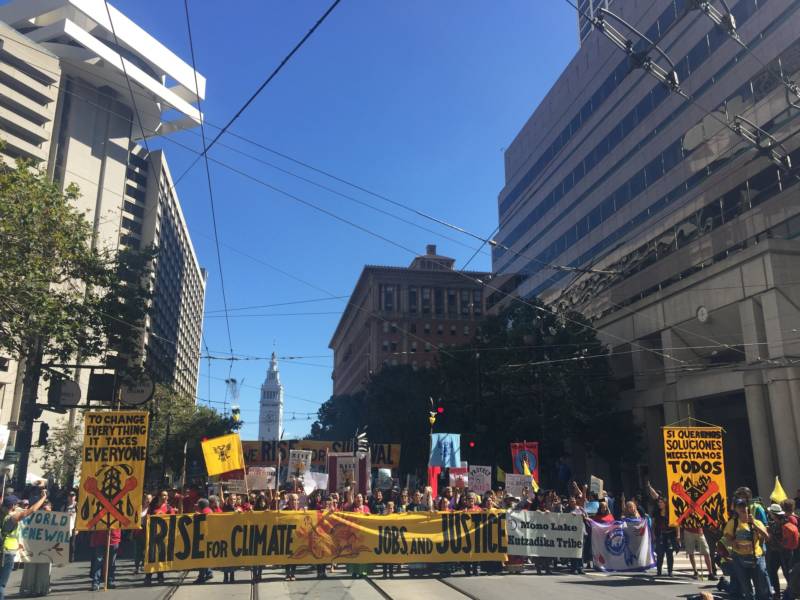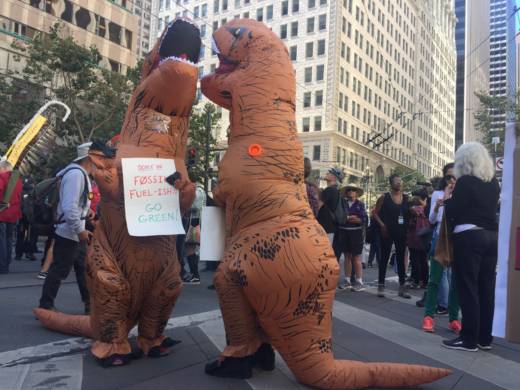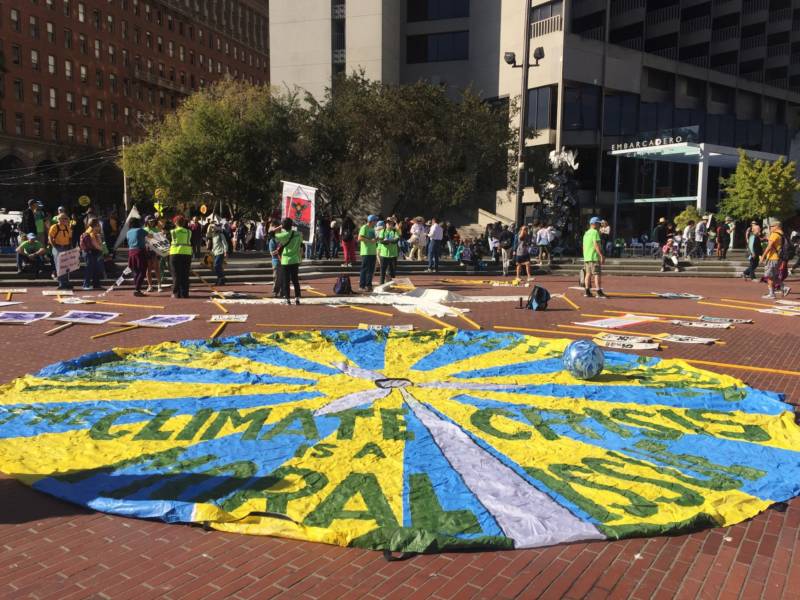The "Rise for Climate, Jobs and Justice" march in San Francisco on Saturday was one of 250 rallies throughout the country, and one of more than 900 held worldwide in 95 countries.
Attendees came from all over California to take part in the march ahead of the Global Climate Action Summit being held in the city, starting Wednesday. The summit, co-chaired by Gov. Jerry Brown, is being framed as a meeting of world leaders to set ambitious goals to stop climate change.
But San Francisco marchers on Sunday told a different story.

"They will raise their brand of leadership on climate solutions, but those are based on industry solutions and maintaining the status quo," says Gladys Limón, Executive Director of the California Environmental Justice Alliance. Limón, along with others at the march, take issue with some of the policies championed by Brown, including the cap-and-trade system, which places a cap on greenhouse gas emissions for companies who can then buy and sell those allowances.
"You can't pollute something over here and then decide you're gonna pay for some clean air somewhere else," says Corrinna Gould with Indian People Organizing for Change, "and that pollution is still there."

